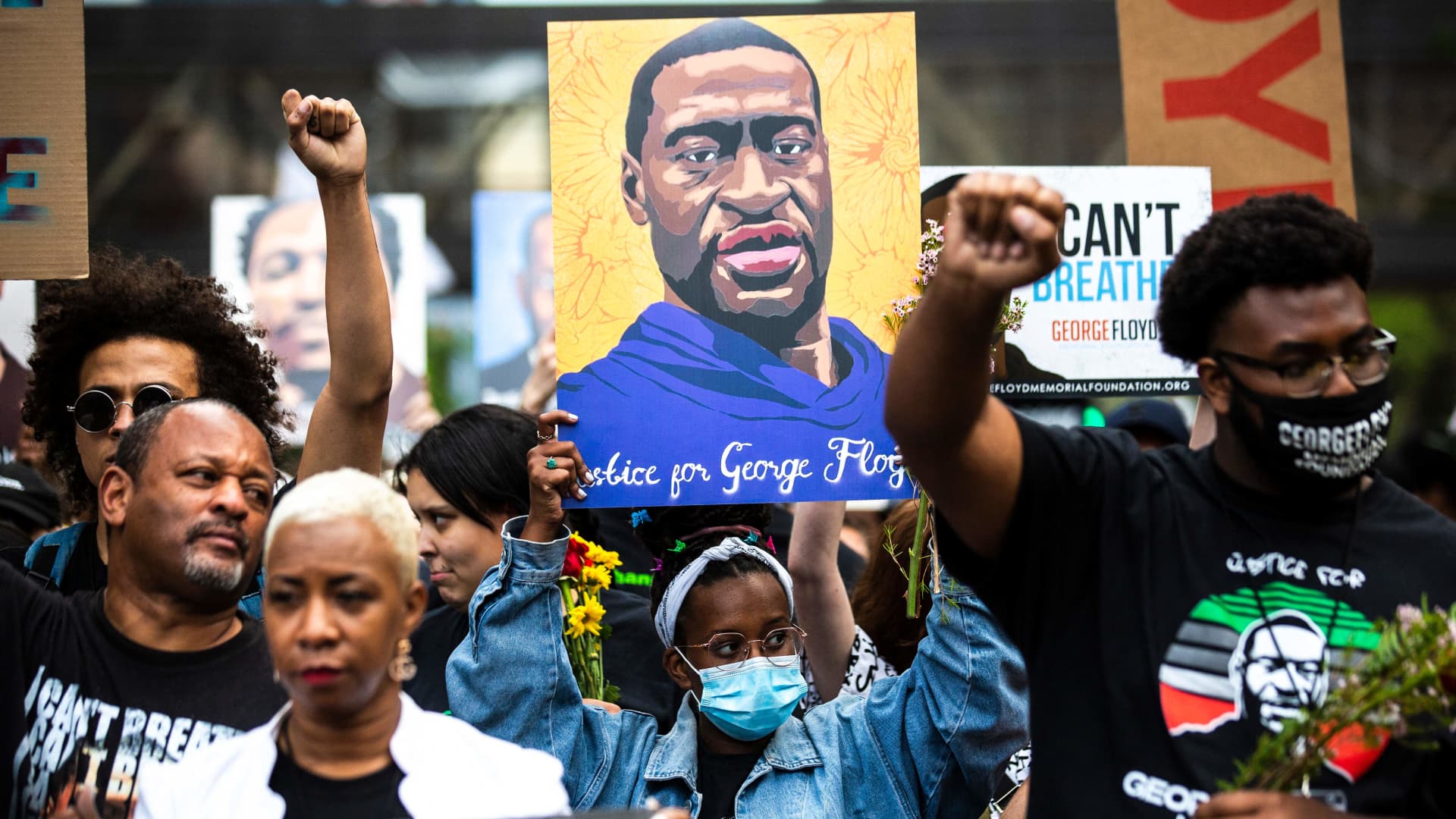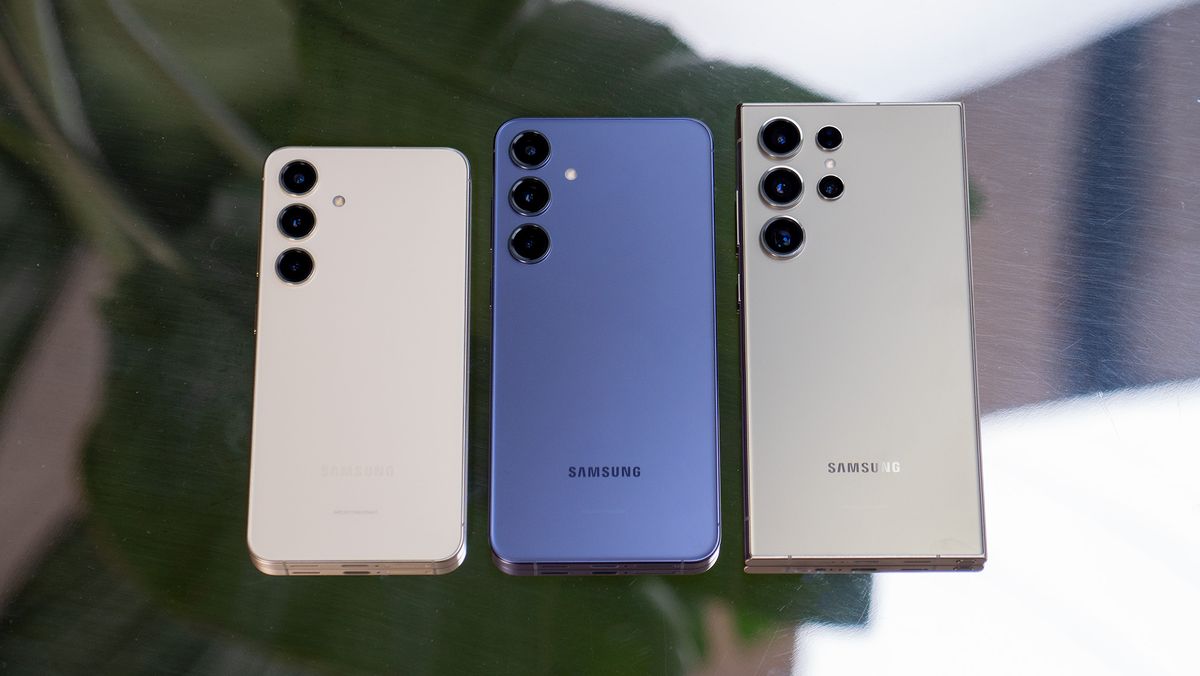People raise their fists as they march during an event in remembrance of George Floyd in Minneapolis, Minnesota, on May 23, 2021.
Kerem Yucel | Afp | Getty Images
The killing of George Floyd and the social justice movement that emerged was an eye-opening moment for many in the U.S., including the nation’s top companies. The tragedy sparked more awareness and positive change in corporate America, according to a new survey of Black executives conducted by CNBC, but the results from the survey show that there remains much work to be done.
The survey, conducted by CNBC in partnership with the Executive Leadership Council, found 74% of Black executives saying they saw a positive change in hiring, retention and promotion of Black employees since Floyd was killed in May 2020. Even more (80%) said their company has provided more support and attention to employee resource groups.
But the need for greater attention to diversity issues is also evident in the results. As many Black executives say organizational treatment of Black employees has remained the same (43%) or worsened (9%) since 2020, as those who say it has improved (48%). And exactly half say there are still less opportunities for Black employees than other employees at their organizations.
“The findings of CNBC’s survey suggest that in the post-Floyd era, businesses are demonstrating an increased awareness of the significant opportunity gap faced by Black professionals,” said Shundrawn Thomas, founder of investment firm The Copia Group. “While pockets of improvement are noted, the results reflect the sobering reality that translating pronouncements into progress demands a greater and sustained effort going forward.”
The vast majority of respondents (88%) indicate their companies did make a commitment to DEI in 2020 after George Floyd’s murder, and that commitment is starting to be reflected at the executive level.
Many companies (41%) increased representation of Black executives on the senior leadership team since 2020; 40% of respondents say performance on diversity, equity & inclusion (DEI) goals are part of the compensation structure for members of the senior leadership team.
But even at the highest levels of management, nearly one-quarter (23%) of these leaders say they do not feel that they are equitably compensated relative to peers. And nearly two-thirds of respondents said Black employees were underrepresented in upper management at their organization, with only about one-quarter describing equal representation, and about 10% indicating Black representation is higher. More than 20% of respondents said there was no Black representation in leadership.
“The survey results are an accurate reflection of the current state of diversity in corporate America and reinforces the fact that there is still so much work to be done,” said Judy Smith, founder of crisis management firm Smith & Company.
Smith and Thomas are among the panelists at CNBC’s upcoming inaugural Equity & Opportunity: Exec Connect event on June 28 in New Orleans focused on Black leadership, where they will be joined by Rashida Jones, president of MSNBC, and Priscilla Sims Brown, CEO of Amalgamated Bank.
Among Black leaders who said they left organizations since 2020 (almost one-third of survey respondents), the majority said the level of commitment by their employers to DEI was a factor. More Black executives said that prior to 2020 their firms were “checking the DEI box” rather than taking a comprehensive approach.
The survey was conducted June 1-June 14 among 67 Black senior leaders, including members of the ELC, with the majority from organizations of 10,000 employees or larger. Sixty percent of respondents are in the C-suite or at the executive vice president level of their organization.





















Discussion about this post